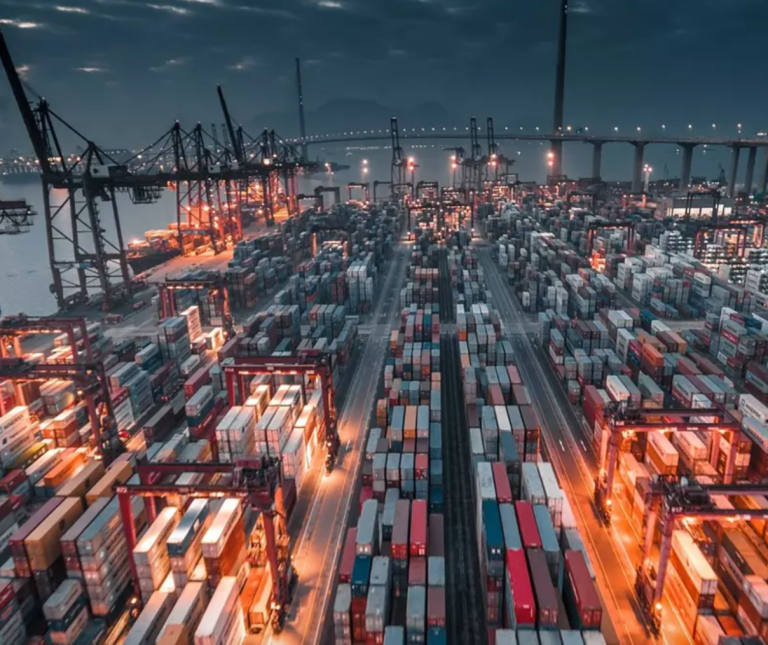The Hidden Cost of Illicit Trade
A Tax Revenue Crisis in the Developing World
Illicit trade is more than just an economic threat - it is a systemic challenge that undermines fiscal stability, weakens governance, and distorts market competition. Across the developing world, the scale of this issue is staggering. The OECD estimates that illicit trade in counterfeit and pirated goods alone represents 3.3% of global trade, with developing economies disproportionately affected.
The Fiscal Impact
Governments in emerging markets rely heavily on consumption-based taxation, such as VAT and excise duties, to fund critical infrastructure and social programs. However, illicit trade erodes these revenues at an alarming rate:
- Tobacco Smuggling: The World Bank reports that illicit cigarettes account for over 50% of total consumption in some African and Southeast Asian countries, costing governments billions in lost excise duties.
- Fuel Smuggling: In West Africa, fuel adulteration and cross-border smuggling deprive governments of as much as $1.3 billion annually in lost tax revenue.
- Counterfeit Pharmaceuticals: The global counterfeit drug trade, valued at
$200 billion, not only endangers lives but also limits tax collection from legitimate pharmaceutical companies.
Beyond Revenue Loss: The Strategic Risks
Illicit trade fuels corruption, weakens investor confidence, and disrupts formal economies. Its proceeds often fund organised crime and extremist networks, exacerbating security challenges. Addressing this issue requires a holistic strategy:
- Strengthening Enforcement: Investment in digital track & trace solutions and customs modernisation can help curb illegal flows.
- Regional Cooperation: Cross-border data-sharing agreements are essential to dismantling smuggling networks.
- Public-Private Collaboration: Engaging industry stakeholders can enhance detection mechanisms and incentivise compliance.
As policymakers and business leaders, we must recognise that tackling illicit trade is not just a revenue imperative - it is a cornerstone of economic resilience. The path forward demands a coordinated, technology-driven, and policy-focused response.
What innovative approaches have you seen in combating illicit trade? Let’s discuss.
#TaxPolicy #IllicitTrade #EconomicGrowth #EmergingMarkets

A Global Trade War
Fuelling the Shadow Economy
Trade wars reshape global markets - but often in unintended ways. While tariffs and sanctions aim to protect domestic industries, they frequently create opportunities for illicit trade to thrive. As legal supply chains contract, counterfeit goods, smuggled products, and black-market alternatives fill the gaps, fuelling an underground economy that is difficult to regulate.
Tariffs Drive Demand for Black Markets
- In 2018-2019, the US - China trade war led to an average 25% tariff on $250 billion worth of Chinese imports.
- In response, imports of Chinese goods through Vietnam surged by 35%, as some suppliers under-declared goods to evade tariffs (Peterson Institute for International Economics).
- The OECD estimates that counterfeits and pirated goods now account for 3.3% of global trade ($509 billion) - a figure that rises when tariffs make legal products more expensive.
Sanctions Create New Smuggling Routes
- US sanctions on Russia led to a 35% increase in illicit oil sales, with crude oil being laundered through third-party nations like India and Turkey (Centre for Strategic & International Studies).
- North Korea evades sanctions by using ship-to-ship oil transfers, with an estimated $500 million in annual losses for sanctioned nations (UN Panel of Experts).
Shifts in Manufacturing Boost Counterfeiting
- Following the US - China trade war, textile and apparel counterfeiting grew by 24%, as goods were rebranded and rerouted through alternative suppliers (International Anti-Counterfeiting Coalition).
- The WHO estimates that 1 in 10 medical products in low-income countries are substandard or falsified, a number expected to rise when legal supply chains are disrupted.
Organised Crime Gains Leverage
- Illicit trade networks generate $2.2 trillion annually, making it the world’s largest “shadow” economy (World Economic Forum).
- The UNODC warns that trade disruptions lead to higher rates of money laundering, human trafficking, and weapons smuggling, particularly in emerging markets.
A Strategic Response
Trade policy should not be crafted in isolation. Governments and businesses must anticipate the unintended consequences of protectionist measures and implement safeguards against illicit trade:
- Enhanced Customs & Border Technologies – AI-driven tracking, sophisticated track & trace software for supply chain transparency, and automated trade monitoring can reduce vulnerabilities.
- Private Sector Collaboration – Companies must reassess supplier risks, strengthen brand protection, and invest in anti-counterfeit measures.
- Balanced Policy Approaches – Whilst trade restrictions may be necessary, they should be paired with stricter enforcement and smarter trade facilitation policies.
Illicit trade is a silent beneficiary of economic disruption. As global trade dynamics shift, policymakers and business leaders must act decisively to ensure that the response to economic challenges does not unintentionally strengthen illicit markets.
What strategies have you seen effectively combat illicit trade? Let’s discuss.
#GlobalTrade #IllicitEconomy #TradeWars #SupplyChainSecurity
We need your consent to load the translations
We use a third-party service to translate the website content that may collect data about your activity. Please review the details in the privacy policy and accept the service to view the translations.
